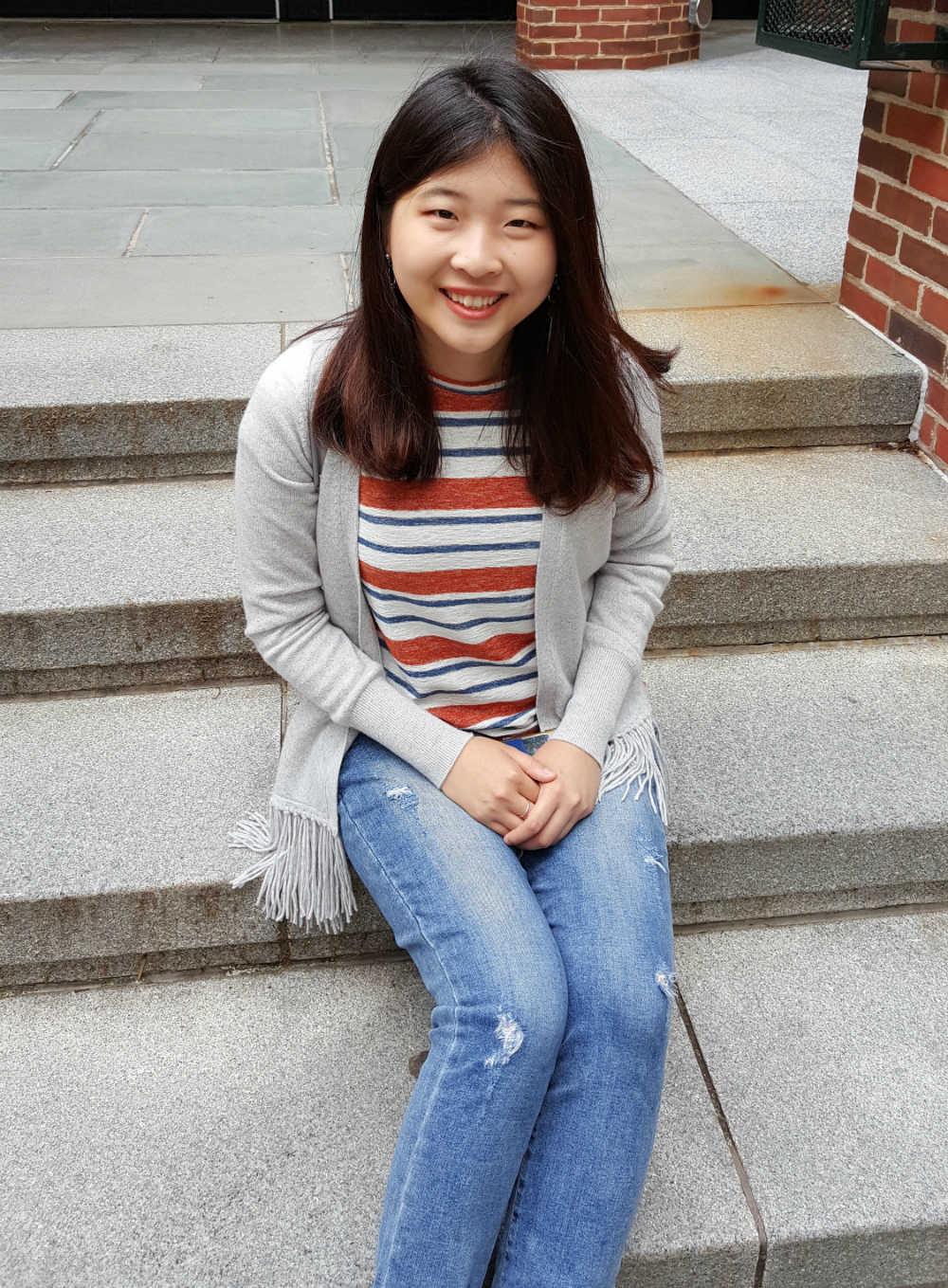Moral Indignation Leads to a Love of Chemistry
Jimin Yoon, C’18, discovers an affinity for science.
During her freshman year at Penn, Jimin Yoon, C’18, took a chemistry course, but her decision to enroll in the class was based more on competitiveness and moral indignation than by desire to learn about the interaction of chemical compounds.
“There was a guy in the freshman class who went to the same high school with my close friend, and my friend had been bullied by this guy,” Yoon explains. “He wanted to major in chemistry and work for a pharmaceutical company, and I felt that anyone who works in the field of medicine, or something directly related to human lives, should have higher moral standards than the average person.” She enrolled in General Chemistry, determined to earn a better grade than her friend’s tormentor. As it turned out, he dropped the course after a few weeks, and Yoon fell in love with chemistry.
Natural sciences were new territory for Yoon, who grew up in Korea and attended a high school with a curriculum focused on the humanities. “It was my first time learning what science actually is,” she says. “I loved the lectures as well as lab, so I thought, ‘Okay, maybe I should try this thing out.’”
Things worked out very well for Yoon, who graduated in May with distinction as a Dean’s Scholar. Since her freshman summer, she has worked as a research assistant in the laboratory of E. James Petersson, Associate Professor of Chemistry. She co-authored two published papers and will be credited as the primary author on an upcoming article about her most recent project on fluorescent chemical compounds known as fluorophores.
The project explores a phenomenon called Förster resonance energy transfer, or FRET, which is widely used in protein studies. “There’s a molecule called a fluorescent probe, and another molecule called a quencher,” Yoon explains. “When they’re close to each other, the quencher suppresses fluorescence so you see less intensity of fluorescence. When they’re farther apart, the quenching is not as strong, so you see higher fluorescence intensity.”
The research team labels proteins or peptides (short chains of amino acids) with those molecules, which makes it possible to monitor change in distances between certain residues and extract information about protein conformations.
“The mechanism by which the fluorescence is quenched by the quencher is defined by mathematical equations,” Yoon says. “Some of the terms we can experimentally define and for some terms we have to make approximations. The research that I am doing is using computational simulations to mimic those fluorophores and quenchers, and to see if we can find a better way to quantify the parameter that we’ve been just assuming to be a certain number. The main objective of the research is to see whether the explicit calculation of the parameter improves the predicted quenching significantly. As we better understand how the fluorophore and quencher behave in different systems, we can investigate the protein structure and dynamics with higher accuracy.”
Yoon arrived at Penn with an interest in art history along with an open mind and a desire to explore. “I wanted to leave room for what I might want to study, and among the schools that I was admitted to, Penn was equally strong in various majors.”
Her time here has had a big impact, both personally and academically. She found strong friendships and a “home away from home” as a clarinetist with the Penn Band. She also learned to value challenges. “In so many moments in college, there were things that I thought I’d never be able to do, and being able to accomplish those things—it was really a magical feeling,” she says. “Now I try not to put limitations on myself, because I’ve figured out that if you try, it might take some time but eventually you’ll be able to do what you want to do.”
After a visit home to Korea this summer, Yoon heads to the Massachusetts Institute of Technology to begin a doctoral program in chemistry, but once again, not for the reasons you might assume.
“Although it would be great if I could become a professor, it’s not the only objective that I have in mind right now,” she says. “I want to do more research, so I’m doing the Ph.D. for the sake of doing a Ph.D.—not for any particular career goal. Even if my job ends up being something unrelated to science, I’m going to be happy with that as well.”



